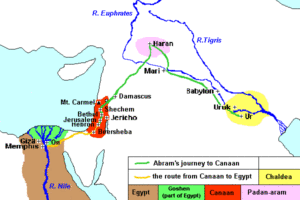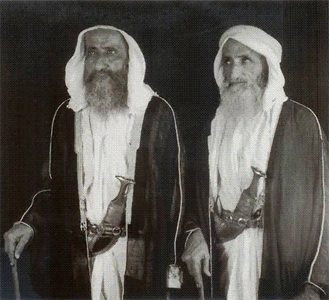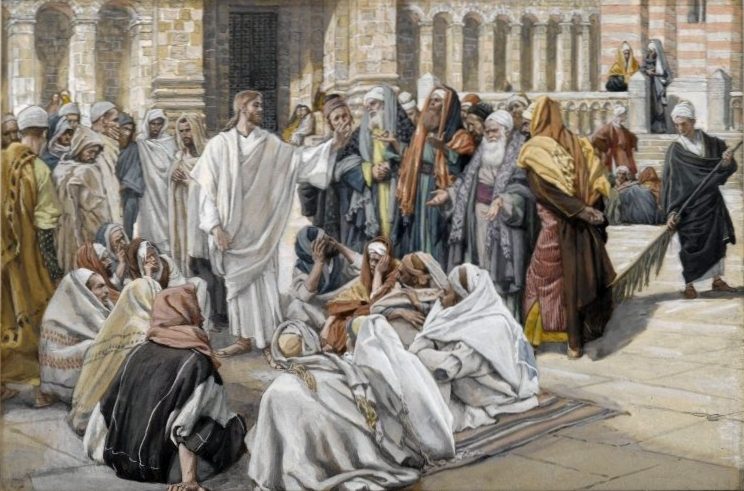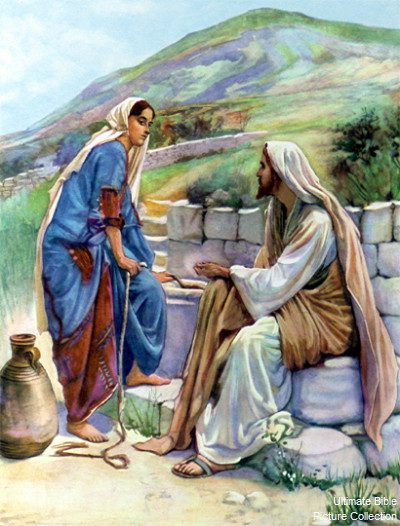We’ve all met them: the academicians, professors, learned men of logic with indisputable researched proofs of their position; the Doctors of Divinity and PhD’s of wisdom: we’ve all met them.
If you have not read the books of wisdom in the Bible, notably Proverbs and Ecclesiastes, you have neglected your own education by God. Of course Bibles were not printed in the days of Jesus of Nazareth and such wisdom was only to be gained from the scholars and academicians of the Temple and synagogues who had access to the scrolls of the written word. Young Jesus was not schooled by such learned men, but held his own in their eyes.
You may be familiar with this story from a parental perspective, yet take a look at this young lad through the eyes of some of the Pharisees present:
Luke 2:
41 Now his parents went to Jerusalem every year at the Feast of the Passover.42 And when he was twelve years old, they went up according to custom. 43 And when the feast was ended, as they were returning, the boy Jesus stayed behind in Jerusalem. His parents did not know it…
46 After three days they found him in the temple, sitting among the teachers, listening to them and asking them questions. 47 And all who heard him were amazed at his understanding and his answers. 48 And when his parents saw him, they were astonished…
52 And Jesus increased in wisdom and in stature and in favor with God and man.
Jesus’ mission from his youth was interrupted by the trappings of everyday life.
Again, another story so familiar for the importance of Jesus’ teachings to a teacher of Israel that we may have missed sight of the person who was the interruption in Jesus’s journeys. Nicodemus is part of the inner circle of Bible scholars. His knowledge of God’s word, Hebrew history and influence is comparable to Saul of Tarsus (Paul) who will follow in just a few years. Jesus is sitting with a VIP of the highest caliber, once again more than holding his own.
Now there was a man of the Pharisees named Nicodemus, a ruler of the Jews. 2 This man came to Jesus by night.
“Rabbi, we know that you are a teacher come from God, for no one can do these signs that you do unless God is with him.”
“Truly, truly, I say to you, unless one is born again he cannot see the kingdom of God.”
“How can a man be born when he is old? Can he enter a second time into his mother’s womb and be born?”
“Truly, truly, I say to you, unless one is born of water and the Spirit, he cannot enter the kingdom of God. 6 That which is born of the flesh is flesh, and that which is born of the Spirit is spirit.
7 Do not marvel that I said to you, ‘You must be born again.’ 8 The wind blows where it wishes, and you hear its sound, but you do not know where it comes from or where it goes. So it is with everyone who is born of the Spirit.”
“How can these things be?”
10 Jesus answered him,“Are you the teacher of Israel and yet you do not understand these things?
11 Truly, truly, I say to you, we speak of what we know, and bear witness to what we have seen, but you do not receive our testimony. 12 If I have told you earthly things and you do not believe, how can you believe if I tell you heavenly things? 13 No one has ascended into heaven except he who descended from heaven, the Son of Man. 14 And as Moses lifted up the serpent in the wilderness, so must the Son of Man be lifted up, 15 that whoever believes in him may have eternal life.
Even unbelievers have heard Jesus’ statement to Nicodemus, the reason God our Father sent the Messiah to the world in the flesh.
Jesus is sitting in the room with Nicodemus, a VIP Jew of Jews, who wants to do what God wants him to do. Nicodemus has come to the Son of Man at night, to where our Lord is resting. Nicodemus, a leader of the Jews, does not invite Jesus Christ to his home; rather Nicodemus interrupts him privately.
Jesus tells the respected leader of the Temple:
- You must be born of water and the Spirit. (Purified by repentance and receive the Holy Spirit of God as Counselor to your eternal soul.)
- No one has ascended into heaven except he who descended from heaven, the Son of Man. (Jesus is saying to Nicodemus, ‘I AM the Messiah.’)
- 16 “For God so loved the world, that he gave his only Son, that whoever believes in him should not perish but have eternal life. 17 For God did not send his Son into the world to condemn the world, but in order that the world might be saved through him. 18 Whoever believes in him is not condemned, but whoever does not believe is condemned already, because he has not believed in the name of the only Son of God.
Imagine that you think you have learned all there is to know about God from the Bible, historical books and prayer. You walk into the home of a man at night to learn more. Then Jesus tells you: I AM the Son of God, sent as the Messiah of Israel and Savior of the world! You have interrupted God Almighty the Person of the Son, who tells you:
God loves you. Believe in the Son, Christ Jesus, and you will have eternal life.
Nicodemus and the Pharisees believed in the resurrection. Some like him met Christ and believed.
How old was Nicodemus when he met Jesus?
I could speculate that as a leader of the Sanhedrin, Nicodemus may have been in his fifty’s or sixty’s, while Jesus is a relatively young man of thirty. It is not inconceivable that Nicodemus could have been one of the up and coming young men of the Temple twenty years earlier when Jesus as a boy interrupted His parent’s pilgrimage with a three-day schooling in ‘His Father’s House.’ At the very least, Nicodemus undoubtedly would have known of the encounter, not to mention the recent teachings of John the Baptizer.
In the beginning was the Word, and the Word was with God, and the Word was God.
The Testimony of John the Baptist
19 And this is the testimony of John, when the Jews sent priests and Levites from Jerusalem to ask him, “Who are you?” 20 He confessed, and did not deny, but confessed, “I am not the Christ.”
24 (Now they had been sent from the Pharisees.) 25 They asked him, “Then why are you baptizing, if you are neither the Christ, nor Elijah, nor the Prophet?”26 John answered them, “I baptize with water, but among you stands one you do not know, 27 even he who comes after me, the strap of whose sandal I am not worthy to untie.”
Nicodemus knew the Messiah (the Christ) of God was coming and wanted to confirm His identity.
Nicodemus may have been waiting for the Son of God to give him a command of what to do as a leader of the Temple. Rather than taking His rightful authoritative position over the Temple and Jerusalem, the Son of Man chose to humbly obey the purpose of Sacrifice for which He was sent.
Jesus has a mission of love for those who will believe. All evidence points to the fact that Nicodemus believed.
Faith does not dispute knowledge, but confirms truth beyond the limits of its proof.
Nicodemus would argue that Jesus should be given a fair trial. [John 7:50-51] Nicodemus obtained permission for the crucified Christ Jesus to be buried and contributed to the costs. [John 19:38-40] Nicodemus may have even been one of the many to whom Christ appeared after His resurrection. [1 Corinthians 15:6]
Suppose a VIP comes to you unexpectedly and asks if Jesus is the Christ. Are you prepared for that interruption?
 Ur, the city they left was a kingdom.
Ur, the city they left was a kingdom.

